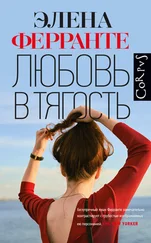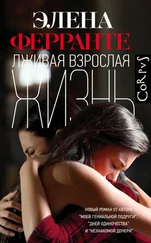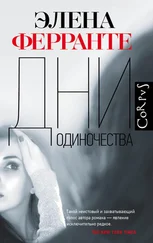“Look,” I said, offering her the lens, “grandmother is wearing my bracelet.”
She didn’t take the lens, she bent over the picture in her fishhook-like pose, shook her head, muttered:
“I never noticed.”
“I saw it right away.”
She grimaced with irritation.
“Yes, you saw it right away. While I showed you your father and you didn’t even look at him.”
“I looked and he doesn’t seem so handsome as you say.”
“He’s very handsome, you’re still young and you don’t understand how handsome a very intelligent man can be.”
“I understand perfectly well. But here he looks like Aunt Vittoria’s twin brother.”
My mother accentuated her weary tone.
“Look, he left me, not you.”
“He left both of us, I hate him.”
She shook her head.
“It’s up to me to hate him.”
“Me, too.”
“No, you’re angry now and you’re saying things you don’t think. But in essence he’s a good man. He seems like a lying traitor, but he’s honest and in a certain sense even faithful. His true great love is Costanza, he has stayed with her all these years, and he’ll stay with her until death. The point is, she’s the one he wanted to give his mother’s bracelet to.”
5.
My discovery hurt us both, but we reacted in different ways. Who knows how many times my mother had leafed through that dictionary, how many times she had looked at that image, and yet had never noticed that the bracelet that Mariano’s wife had shown off for years, that she had for years considered a refined object she would have liked to possess, was the same that showed up on the arm of her mother-in-law in that photo. In the image fixed in black and white she had seen only my father when he was a young man. There she had recognized the reasons she loved him and so had kept the photo in the dictionary like a flower that, even when it dries, reminds us of the moment it was given to us. She had never paid attention to the rest and so, when I showed her the bracelet, she must have suffered terribly. But she suffered without letting me see it, controlling her reactions and trying to blur my inopportune gaze with sentimental or nostalgic little speeches. My father good, honest, faithful? Costanza the great love, the true wife? My grandmother who preferred Enzo, the seducer of Vittoria, to her own son? She improvised many stories of that type and jumping from one to the next slowly returned to take shelter in the cult of her ex-husband. Of course, today I can say that if she hadn’t in some way filled the void he left she would have fallen into it and died. But in my eyes the way she had chosen was the more offensive one.
As for me, the picture gave me the audacity to think that I wouldn’t return the bracelet to Vittoria for any reason. The rationales I proposed were very messy. It’s mine, I said to myself, because it was my grandmother’s. It’s mine, I said to myself, because Vittoria appropriated it for herself against my father’s will, because my father appropriated it for himself against Vittoria’s will. It’s mine, I said to myself, because it’s owed to me, it’s owed to me whether Vittoria really gave it to me or whether that’s a lie and my father took it to give to a stranger. It’s mine, I said to myself, because that stranger, Costanza, gave it back to me, and so it’s not right for my aunt to claim it. It’s mine, I concluded, because I recognized it in the picture and my mother didn’t, because I can look pain in the face and endure it and also cause it, while she can’t. I feel sorry for her, she’s not even able to become Mariano’s lover, she doesn’t know how to have fun, she wastes her energy on stupid pages in books for people like her.
I wasn’t like her. I was like Vittoria and my father, who in that picture were physically very similar. So I wrote a letter to my aunt. It came out much longer than the one she had written me, I listed the entire jumble of reasons that I wanted to keep the bracelet. Then I put the letter in the backpack where I carried my schoolbooks and waited for the day when Corrado or Vittoria would reappear.
6.
To my surprise, however, it was Costanza who showed up outside school. I hadn’t seen her since the morning when, compelled by my mother, she had brought me the bracelet. She looked even more beautiful than before, even more elegant, with a faint perfume that my mother had used for years but no longer did. The only detail I didn’t like: her eyes were swollen. She said to me in her husky, seductive voice that she wanted to take me to a little family party, her daughters and I: my father was busy at school for most of the afternoon, but he had called my mother, and she had given her consent.
“Where?” I asked.
“At my house.”
“Why?”
“You don’t remember? It’s Ida’s birthday.”
“I have a lot of homework.”
“Tomorrow is Sunday.”
“I hate studying on Sunday.”
“You’re not willing to make a small sacrifice? Ida always talks about you, she really loves you.”
I gave in, I got in the car, perfumed as much as she was, and we drove toward Posillipo. She asked me about school, and I was very careful not to say that I was still in the first year of high school, even though I didn’t know what they studied in the second, and since she was a teacher I was afraid of making a mistake with every answer. I avoided asking her about Angela, and Costanza right away began to tell me how sorry her daughters were that we didn’t see one another anymore. She said that Angela had dreamed about me recently, a dream in which she lost a shoe and I found it for her or something like that. While she talked I fiddled with the bracelet, I wanted her to notice that I was wearing it. Then I said: it’s not our fault if we don’t see each other anymore. As soon as I said those words, Costanza lost her cordial tone, she muttered: you’re right, it’s not your fault, and stopped talking, as if she had decided that because of the traffic she had to concentrate on driving. But she couldn’t contain herself and added suddenly: don’t think that it’s your father’s fault, there’s no fault in what happened, one does harm without wanting to. And she slowed down, pulled over, said: I’m sorry and—good Lord, I couldn’t bear any more crying—burst into tears.
“You don’t know,” she sobbed, “how badly your father feels, how he worries about you, he doesn’t sleep, he misses you, and Angela and Ida and I also miss you.”
“I miss him, too,” I said uneasily, “I miss all of you, even Mariano. And I know there’s no fault, it happened, no one can do anything about it.”
She dried her eyes with her fingertips, every gesture of hers was light, decorous.
“How wise you are,” she said, “you always had a good influence on my daughters.”
“I’m not wise, but I read a lot of novels.”
“Good, you’re growing up, you have witty answers.”
“No, I’m serious: instead of my own words, phrases from books come to mind.”
“Angela doesn’t read anymore. You know she has a boyfriend?”
“Yes.”
“Do you have one?”
“No.”
“Love is complicated, Angela’s starting too soon.”
She made up her reddened eyes, asked me if she looked all right, started off again. She went on, hinting discreetly, to talk about her daughter, she wanted to know, without asking explicit questions, if I was more informed than she was. I got nervous, I didn’t want to say the wrong thing. I quickly realized that she didn’t know anything about Tonino, not his age, or what he did, not even his name, and for my part I avoided connecting him to Vittoria, Margherita, Enzo, I didn’t even say that he was almost ten years older than Angela. I muttered only that he was very serious, and in order not to say anything else I was on the verge of pretending that I didn’t feel well and wanted to go home. But by now we had arrived, the car was gliding along a tree-lined street, Costanza parked. I was captivated by the light that radiated from the sea and by the splendor of the garden: how much of Naples you could see, how much sky, how much of Vesuvius. So here was where my father lived. Leaving Via San Giacomo dei Capri he hadn’t lost much in altitude and had certainly gained in beauty. Costanza asked me:
Читать дальше
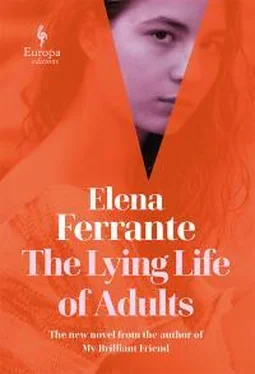
![Элена Ферранте - История о пропавшем ребенке [litres]](/books/32091/elena-ferrante-istoriya-o-propavshem-rebenke-litres-thumb.webp)
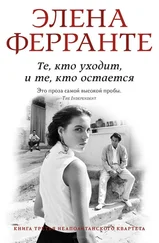
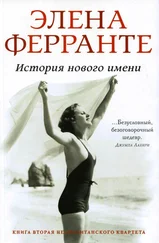
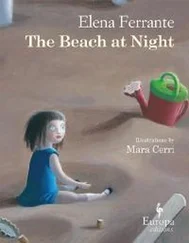
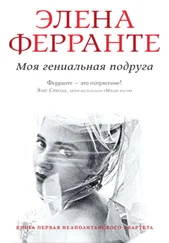
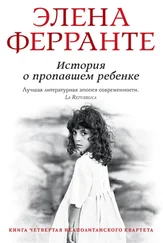
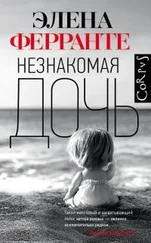
![Элена Ферранте - Дни одиночества [litres]](/books/404671/elena-ferrante-dni-odinochestva-litres-thumb.webp)
